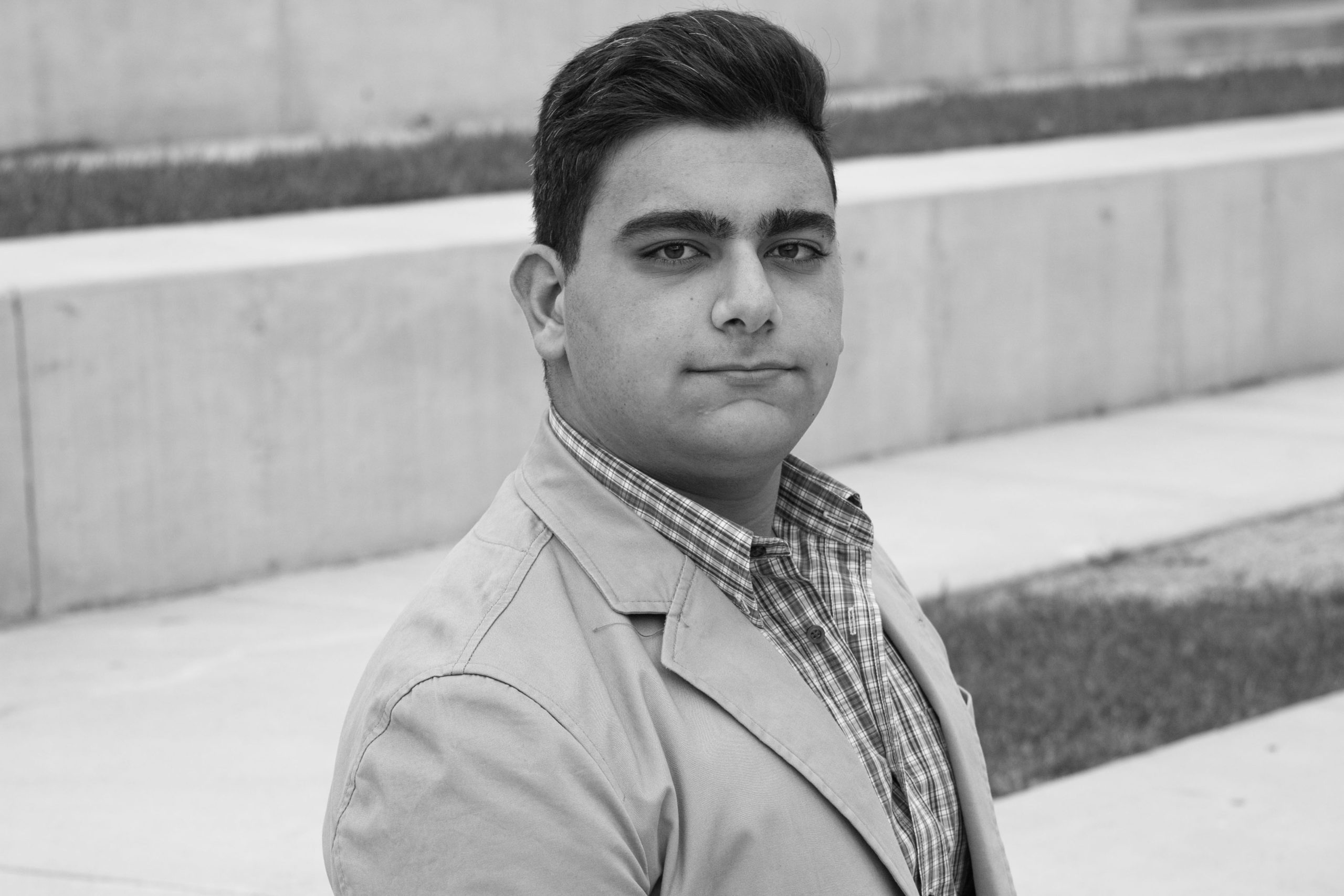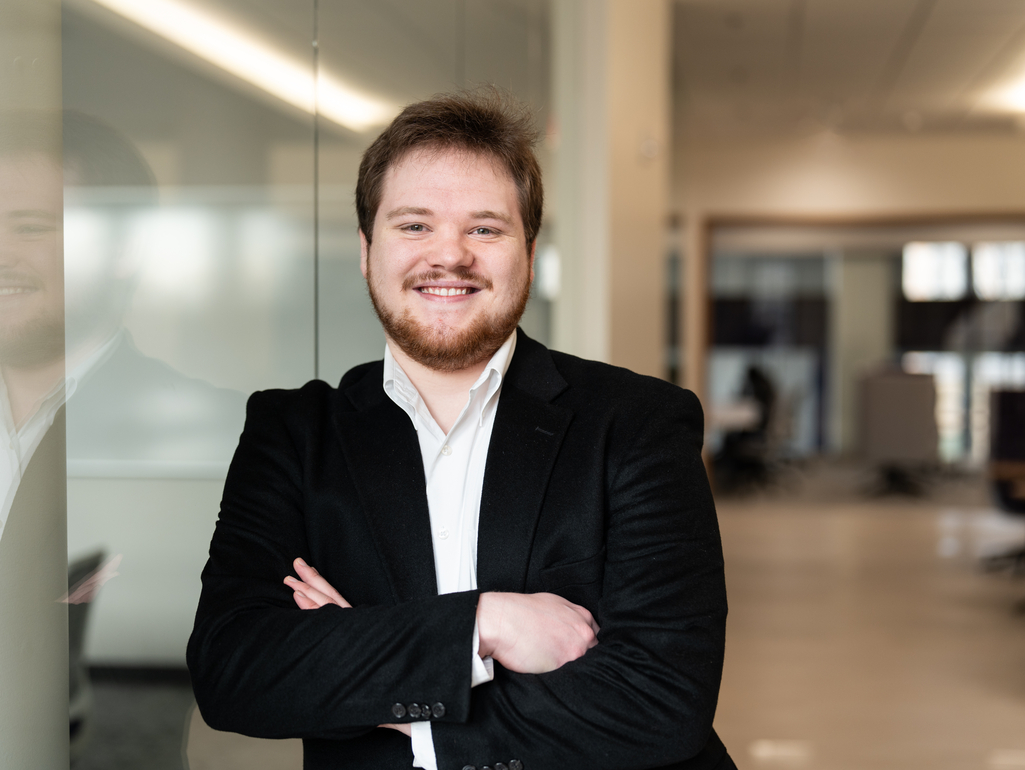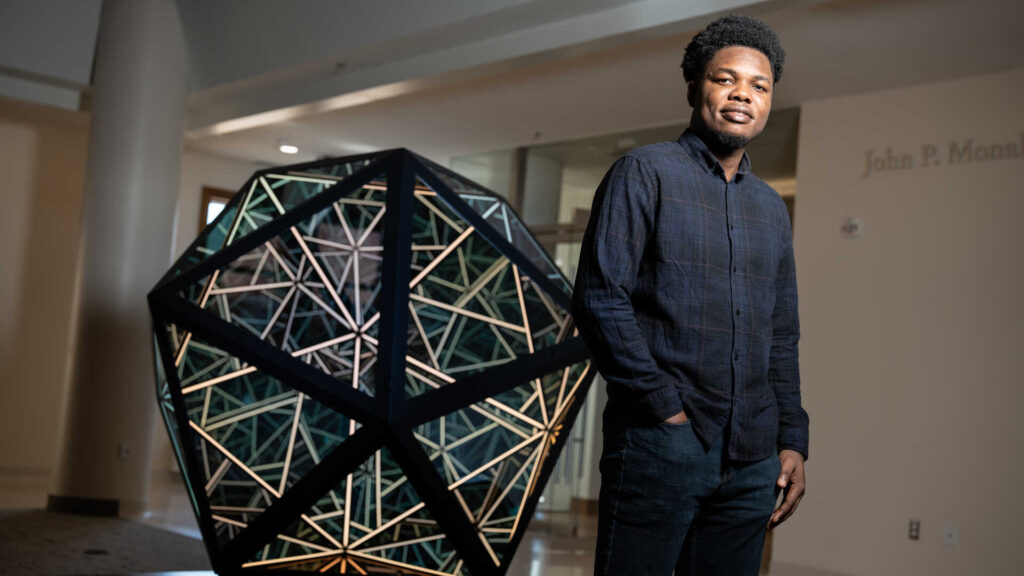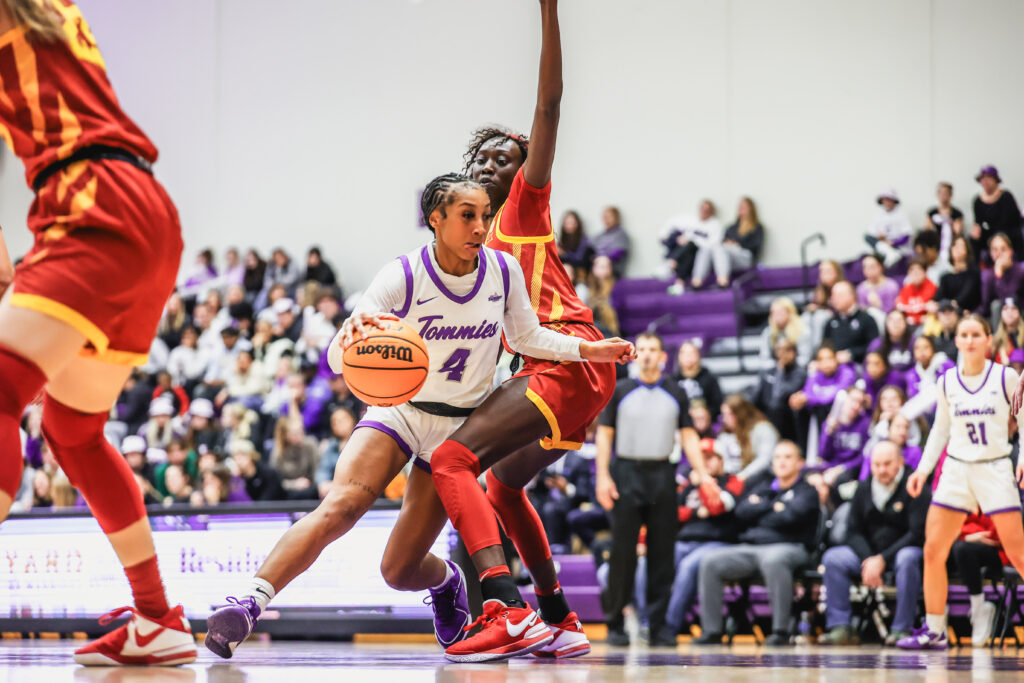Schulze Innovation Scholar Georges Macheta ’25 moved from Syria to St. Paul to study computer science and entrepreneurship at the University of St. Thomas. As the Syrian Duolingo Ambassador, Macheta scored an impressively high score on the Duolingo English Test, a test that if international students pass, they are able to apply to universities in the United States.
Aside from being on the executive board of the Swing Dance Club, Macheta is in the liturgical choir and involved in the computer science club on campus. He, along with Regina Talavera, recently placed third runner-up in the Fowler Business Concept Challenge in the social venture track.
How did you become a Duolingo Ambassador?
After ninth grade I applied to a boarding school called the National Center for the Distinguished. They take the top 75 students. I got admitted to that and I spent my 10th and 11th grade there. I saw a lot of people older than me applying to universities abroad. I didn't know that was possible. I thought that was a fairy tale in a movie or something.
I started looking into it and there is this organization called Syrian Youth Empowerment that helps Syrians apply to universities abroad.
I applied to that and got rejected the first year. I spent the rest of the year improving myself before I got admitted.
Once I got admitted, they provided guidance to me. I had to do everything on my own, so I applied to 42 universities in the U.S., Canada and the U.K. I got into 10 universities. I received full scholarships at St. Thomas, the University of Minnesota and Duke University.
Taking the Duolingo English Test and being able to score that high helped me achieve this. Taking that test as a Syrian and proving that I can get a high score on it helps other students in Syria today. Previously, people had to go to a neighboring country to take the Test of English as a Foreign Language (TOEFL), which was the only thing available for us. Then Duolingo came with an online test.
I think I had the highest score in Syria. There were about 100 other people taking it at that time. They call me the Duolingo Ambassador because I was going around telling people they didn't have to leave the country to take the test, they could instead take it online.
You said you spent a year improving yourself. What did this look like?
I spent about six months during my senior year of high school improving myself. In Syria, we have a final test at the end of high school that determines our high school GPA and everything else.
So people quit everything in their life to just focus on that test. I had to do that and prepare myself for an English test. I had to spend six months basically memorizing 100 words a day.
I would literally type a word in Microsoft Word and get all the synonyms for it. I memorized all the synonyms for that word. I guess this worked because people tell me I have good English.
I like to improve my language. For the project I did research on, we basically created biodegradable plastic from milk. I really enjoy doing research and chemistry. I like experimenting and that’s why I've been into entrepreneurship.
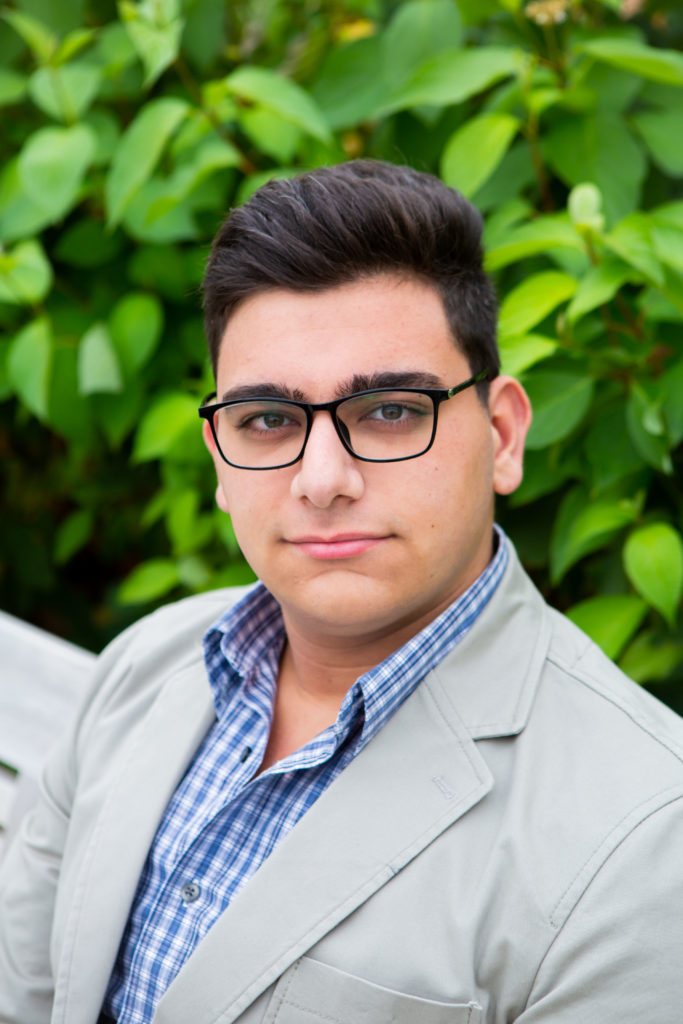
Entrepreneurship was not my plan. I was planning on studying computer science. There was this scholarship for entrepreneurs, and I didn’t even know what entrepreneurship meant as an English word. I researched it and really liked the concept. I wanted to be an entrepreneur.
At this point I was starting a nonprofit that creates social media content. This content helps Syrians choose their path in university. In Syria, once you choose a major you can't change it.
I was creating research at the time and that's what I used to tell them about my entrepreneurial endeavors to get the scholarship. I had to leave my research project when I came here, but now, using my studies, I hope to affect even more people and advance the common good.
What made you choose St. Thomas?
At one time, I had equal scholarships from St. Thomas and the University of Minnesota. After a while I got an email from the Archdiocese of Saint Paul and Minneapolis and they offered to sponsor me, so now I am on a full-ride scholarship.
My values and views aligned on how I want to use my education, specifically in business and entrepreneurship.
People look at business and just want to make money. Primarily, I want to do business to advance the common good.
What has been the most challenging part from moving to the U.S. from Syria?
The hardest thing has been moving to an environment that is completely different. Since I came here two months ago, everything I do, literally everything, is new for me. Washing my hands using the automatic faucets and tapping the button before I cross the street are all new experiences. In Syria, we just cross the street and pray we don't get hit by a car. We never wore a seat belt in Syria either. I can't believe I'm even talking to people in English. I still don’t think this is real.
Where do you see yourself after graduation?
I can do what I want here. In Syria, you are given classes and you take it or leave it. You can't do what you want. What I really want to do with my education is use it to decide where I can implement my abilities the best to advance the common good.
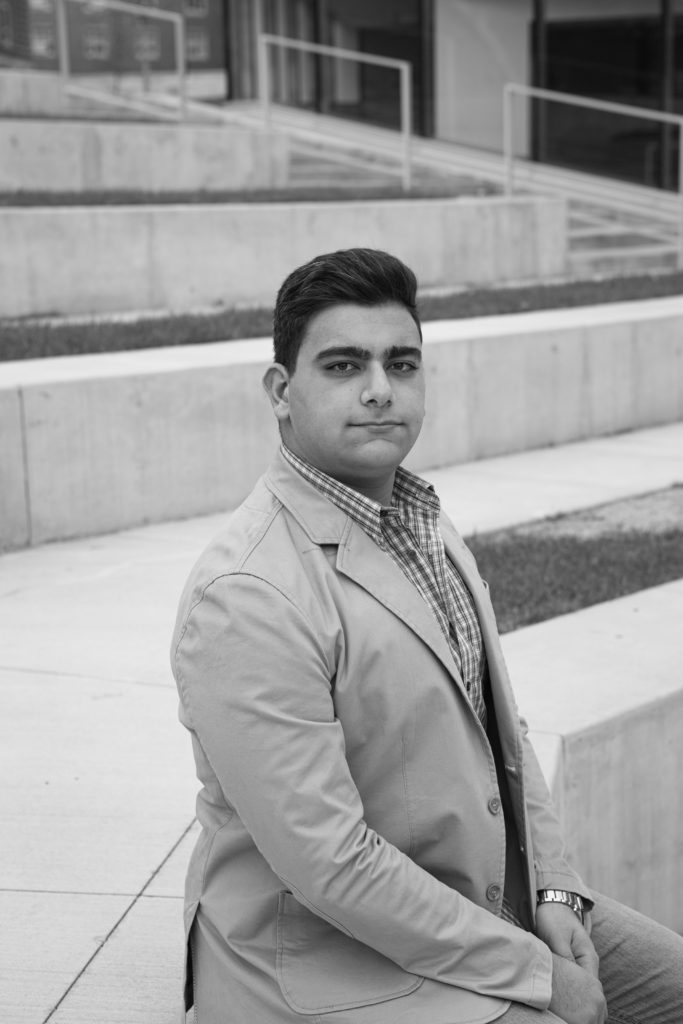
I am discovering more and more what I am good at. I’m actually good at swing dancing. I didn't know what swing dancing was before I came here and now I’m on the executive board of the Swing Dance Club.
I want to use these four years to discover what I am capable of before I decide what I want to do. I’m still young and naive, but I want to change the world. I don't want to change my mind about that.
What is your idea you submitted into the Fowler Business Concept Challenge?
My idea is basically an app that helps international students apply everywhere. You can think of it as the Common App of the whole world. My business partner is also an international student and her name is Regina Talavera. I advanced to the finals of the Fowler Business Concept Challenge and won third runner-up in the social venture track.
What is your biggest aspiration?
My goal is to reach a point where I inspire others. I want to really help change someone's life, even if it's just one person. I went through a lot of crazy things in Syria so my aspiration is to live a normal life with a family.
Who is your favorite artist?
I play the guitar, so my favorite band is called Gypsy Kings. In Arabic music, my favorite singer is George Wassouf.
What is the best piece of advice you have ever received?
The best advice I have received is from my father. I’ve been implementing it my whole life. My father once said, “I’d rather regret doing something, than regret not doing it.” That is why I try to take as many opportunities that come across as possible.
